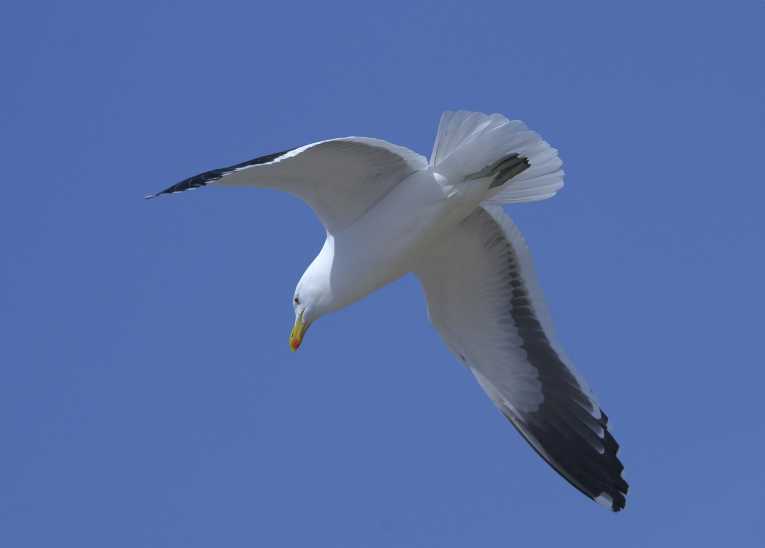One of the icons of the endless oceanic horizons of the Pacific - the soaring black-footed albatross - has been shown to be carrying an ever-increasing burden of pollution, because of man’s careless emissions of toxic mercury. That’s the picture being painted from a new study into the history of sea-bird pollution, in today’s Proceedings of the National Academy of Sciences. And the implications of high mercury levels stretch beyond concerns about wildlife across the Pacific, to potential public health hazards for those partial to having the Fruits de Mer or 'fruits of the sea' on their daily menu.
Mercury levels have been rising in the air and sea since the industrial age started, and have in the past caused mass poisonings amongst wildlife, and humans, from unchecked spillages and dumping. Because of these notorious incidents, mercury is tightly controlled and rarely a direct pollution problem - but mercury continues to enter the environment from indirect sources, especially the burning of mercury-loaded coal in power stations.
This can cause toxic problems for wildlife, and so threaten the future of some species that are already on the edge. One such endangered species is the black-footed albatross. In order to track the possible rise of mercury exposure in this study, researchers from Harvard University have used samples from feathers of these birds, collected over 120 years - taking advantage of specimens found in natural history museums across the US.
What they found was a very strong tracking between methylmercury - the form that leaked mercury takes in the environment - in the bird feathers, and the known levels of man-sourced mercury releases. This could be dangerous for the survival of this rare albatross. Lead author Anh-Thu Vo said ''Given both the high levels of methylmercury that we measured in our most recent samples and regional levels of emissions, mercury bioaccumulation and toxicity may undermine reproductive effort in this species and other long-lived, endangered seabirds.''
As well as the toxic effects on wild animals, the humans that eat them are at risk too. That's because the very low levels of mercury in the air and sea build up through the food chain. From krill to small fish to big predators - like swordfish, shark or halibut - mercury levels can rise a million time the level found in the background. The EPA recommends pregnant mothers and young children avoid eating more than 6 ounces of fish, as mercury can cause problems with brain development.
Co-author Michael Bank said ''Using these historic bird feathers, in a way, represents the memory of the ocean, and our findings serve as a window to the historic and current conditions of the Pacific, a critical fishery for human populations. Although most people have low or no risk from mercury exposure, for the people who are at risk, for example, from excessive fish consumption, the problem can be considerable.''










